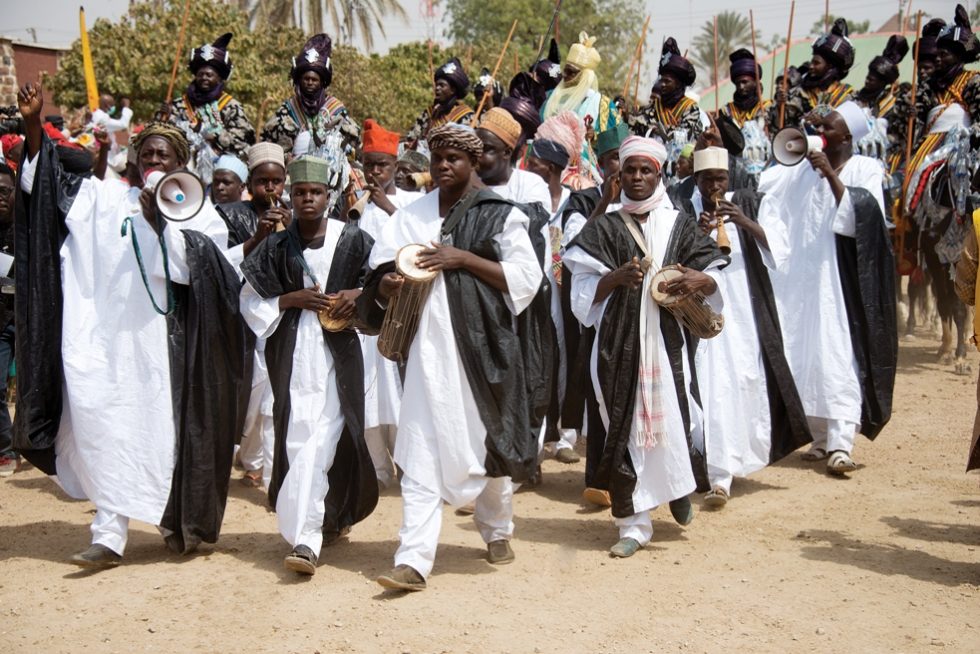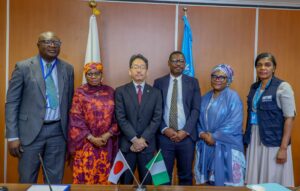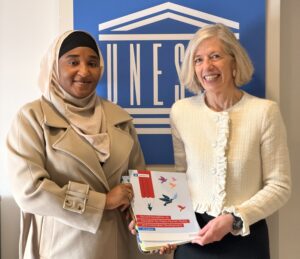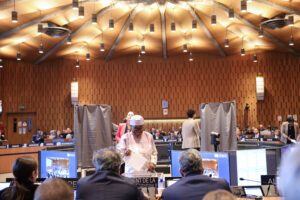
The Durbar Festival has been a traditional festive event and cultural expression in Northern Nigeria for more than 500 years. Introduced by Sarki Muhammadu Rumfa of Kano in the late 15th century as a way of demonstrating military power and skills before going to war, it is now a ceremonial festival associated with the Eids, welcoming of visiting dignitaries and the installation of new Emirs. The Durbar entertains, instructs, excites and dignifies political power structure. It is essentially a dexterous display of horsemanship and brilliant exhibition of a people’s cultural heritage and traditions.
The Festival has also developed into a prominent cultural industry – whereby the breeding of horses, manufacturing of saddles, ceremonial garments and musical instruments not only generate employment, but also help to develop skills in horse riding, music and oratory aptitudes in a unique market which contributes directly to the economy. It is well known as a leading festival that attracts cultural tourism in the north of Nigeria.
“Durbar in Northern Nigeria”, an Exhibition organized and hosted by the Permanent Delegation of Nigeria to UNESCO, in collaboration with Nigerian Visual Artist Mr. Adeniyi Olagunju of “Art Heritage”, was showcased at the UNESCO Headquarters from 19th – 23rd July, 2016. The inauguration of this Exhibition on 19th July, 2016, was honoured by the presence of the Honourable Minister of Education, Malam Adamu Adamu as well the Honourable Minister of Information and Culture, both of whom supported the organization of this exhibition. The event was also honoured by the presence of His Highness, the Emir of Kano, Muhammad Sanusi II.
As a celebration of Nigeria’s Intangible Cultural Heritage, the Exhibition featured high-quality and large image displays, video documentaries as well as the launching of a photo-book which showcased the Durbar celebration in the various Emirates. The Exhibition aimed to foster awareness of how Intangible Cultural Heritage contributes to economic and political development as well as cultural tourism.




